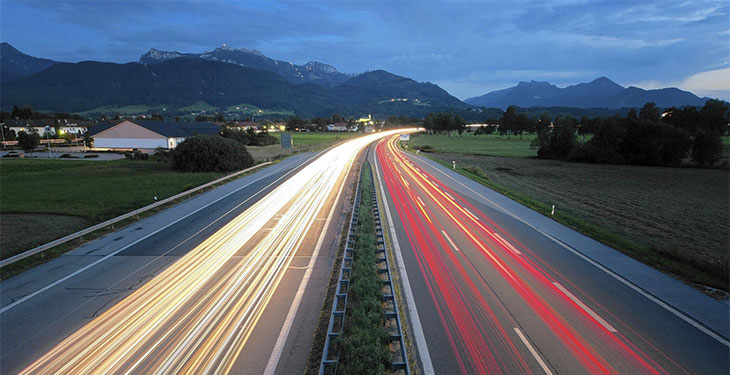In the face of increasingly congested roads, air contaminant concentrations above permitted levels in many cities, and high greenhouse gas emissions in the transport sector, few people question the need for a ‘mobility transition’. This is the result of a representative survey conducted by KfW Research. Eighty-one per cent of Germans between the age of 18 and 67 see the need to change attitudes and behaviours in the interests of the climate, for example by developing viable, climate-friendly means of transport, improving public transport systems, and making a conscious decision to use cars less often.
Respondents see the primary responsibility resting with the automotive industry (89%) and call on policymakers to improve the conditions for change (77%). But they are also very much willing to modify their own behaviours as users of transport (71%). There is even a majority for a speed limit on autobahns, a highly controversial topic, with nearly 60% in favour. But not all groups of the population agreed to the same extent. More women favour a speed limit than men (70% vs. 50%). Age plays a role as well, with men below the age of 30 the least in favour (35%).
‘The importance of a mobility transition has found its way into the mainstream of society. Most people recognise that it is not just up to car manufacturers and politicians, but that they, too, can do something to protect the climate through their mobility choices’, said Dr Jörg Zeuner, Chief Economist of KfW Group. ‘These findings are encouraging because Germany will not be able to achieve its climate targets without a trend reversal in the mobility sector.’ He added that while greenhouse gas emissions in the energy sector in Germany decreased by around 25% between 1990 and 2015, in the transport sector they are still on the level of 1990. ‘Germany still has every opportunity to play a decisive role in shaping the future and remain one of the most important locations of the automotive industry’, added Dr Jörg Zeuner.
The KfW survey also revealed that one in three respondents (36%) have already changed their mobility behaviour and were driving their cars less and using more buses, trains or bicycles. Accordingly, developing mass public transport systems met with the highest approval rate of all policy measures (91%), closely followed by expanding walkways and bicycle lanes (86% and 85%). By contrast, Germans are critical of measures aimed at limiting traffic through toll systems. Two thirds of respondents each reject the introduction of a general toll for passenger vehicles and city toll schemes.
